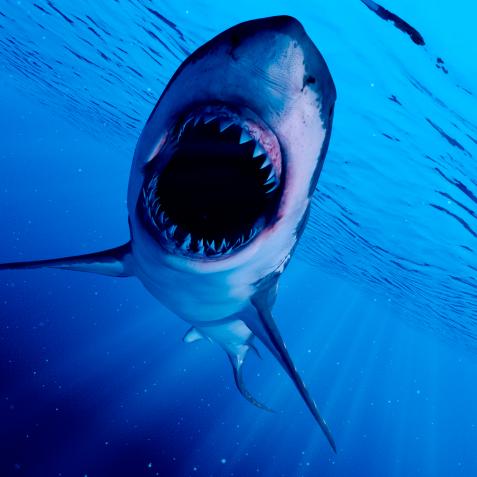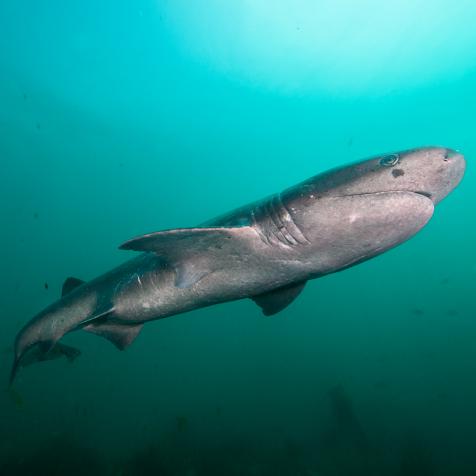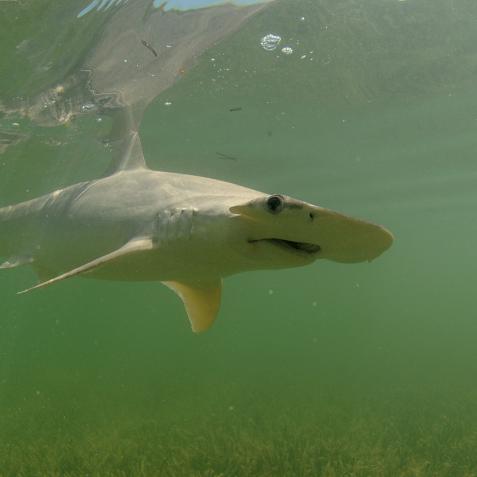
Loic Lagarde
Swimming with Sharks
One research foundation is working to change public perception of sharks by taking people swimming with them – without a cage.
No animal on earth has been vilified quite like the shark. Thanks to gory front page images of shark attacks, and blockbusters like “Jaws”, the shark has long been feared and despised. However, one research foundation is working to change public perception of sharks. How? By taking people swimming with them – without a cage.
Hawaii-based One Ocean, founded by Ocean Ramsey, offers snorkeling and free-diving trips with sharks off the coast of Oahu, pairing the excursions with a lesson on shark behavior and habits.
Ramsey, who grew up on Hawaii’s North Shore, is a scuba diver and free diver, who works as a marine biologist and shark conservationist, and is passionate about educating the public about her favorite animals.
“Most people are automatically scared of sharks, but actually humans aren’t prey for them,” Ramsey explains on board one of the foundation’s boats. She takes every group through a detailed plan of how to behave around sharks – after all, it is their habitat – including how to spot aggressive or nervous behavior, and the species of sharks that are listed as endangered.
It is estimated about 100 million sharks are killed annually, with shark fin soup, a delicacy in Asia, being one of the biggest threats to the shark population. Seventeen species are classified as facing extinction.
Sharks play a vital role in ocean ecosystems, as they are at the top of the food chain and keep food webs in balance. They eat efficiently, targeting old, sick or slower fish, helping maintain healthy fish populations.
One Ocean has a number of ongoing research programs, including studying shark movements and migration patterns, interspecies dynamics, behavior, and interactions with other marine life. The foundation promotes a Shark ID program, which uses deep-water camera systems to reduce the need for tagging. Each time tourists are taken out to dive with the sharks, the crew gets an opportunity to continue with their research.
The One Ocean team knows all the best spots to find sharks, and after an exhilarating boat ride, the vessel drops its anchor and the passengers suit up with fins, snorkel and mask. The boat’s propellers attract numerous sharks due to the electrical pulses, and the divers can then descend into the water.

ATTILA KISBENEDEK
Plunging into the water, in the middle of the ocean, with sharks circling just meters below is a terrifying, hair-raising moment, but it’s soon one that turns into a beautiful, humbling experience. Swimming with sharks is not for the faint-hearted. But, the opportunity to experience these majestic beasts up close is an opportunity to understand them in their natural habitat. With the guidance of Ramsey and her experienced team of biologists, divers and conservationists, it’s easy to forget the reputation sharks have been given. The Galapagos and Sandbar sharks circling below move with grace, shimmering under the sun’s rays that have filtered through the ocean.
“When people get the opportunity to get up close with these amazing creatures, they realize that reality is very different to what we see in the media,” says Ramsey. “We really want to show the public that sharks are not a threat to us, we are the threat to them, and they need our help.”



















